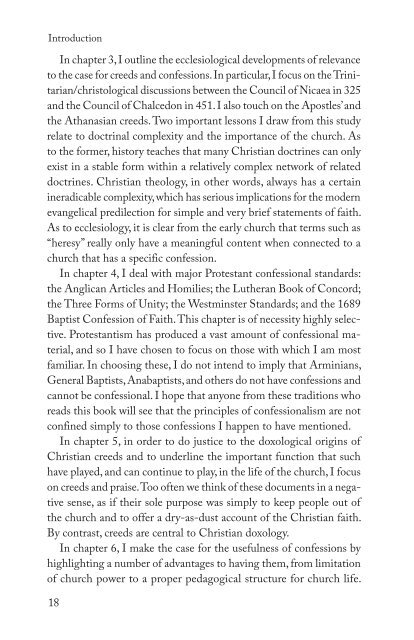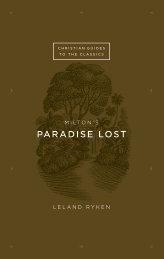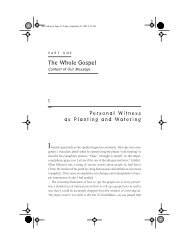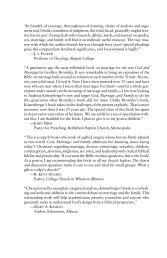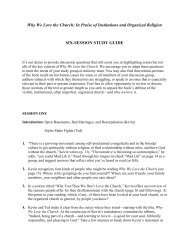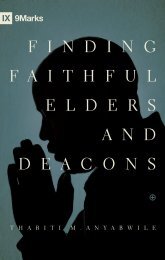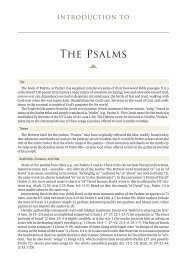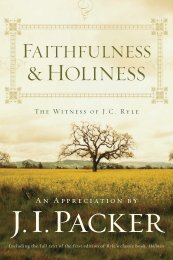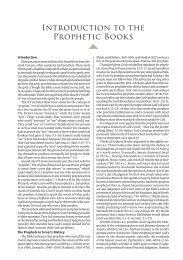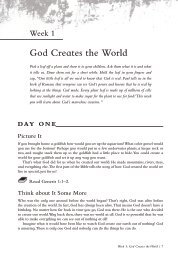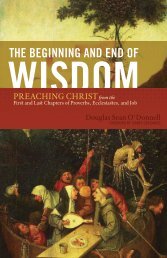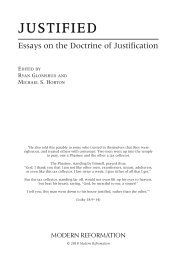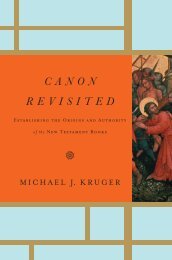The reedal - Monergism Books
The reedal - Monergism Books
The reedal - Monergism Books
You also want an ePaper? Increase the reach of your titles
YUMPU automatically turns print PDFs into web optimized ePapers that Google loves.
IntroductionIn chapter 3, I outline the ecclesiological developments of relevanceto the case for creeds and confessions. In particular, I focus on the Trinitarian/christologicaldiscussions between the Council of Nicaea in 325and the Council of Chalcedon in 451. I also touch on the Apostles’ andthe Athanasian creeds. Two important lessons I draw from this studyrelate to doctrinal complexity and the importance of the church. Asto the former, history teaches that many Christian doctrines can onlyexist in a stable form within a relatively complex network of relateddoctrines. Christian theology, in other words, always has a certainineradicable complexity, which has serious implications for the modernevangelical predilection for simple and very brief statements of faith.As to ecclesiology, it is clear from the early church that terms such as“heresy” really only have a meaningful content when connected to achurch that has a specific confession.In chapter 4, I deal with major Protestant confessional standards:the Anglican Articles and Homilies; the Lutheran Book of Concord;the Three Forms of Unity; the Westminster Standards; and the 1689Baptist Confession of Faith. This chapter is of necessity highly selective.Protestantism has produced a vast amount of confessional material,and so I have chosen to focus on those with which I am mostfamiliar. In choosing these, I do not intend to imply that Arminians,General Baptists, Anabaptists, and others do not have confessions andcannot be confessional. I hope that anyone from these traditions whoreads this book will see that the principles of confessionalism are notconfined simply to those confessions I happen to have mentioned.In chapter 5, in order to do justice to the doxological origins ofChristian creeds and to underline the important function that suchhave played, and can continue to play, in the life of the church, I focuson creeds and praise. Too often we think of these documents in a negativesense, as if their sole purpose was simply to keep people out ofthe church and to offer a dry-as-dust account of the Christian faith.By contrast, creeds are central to Christian doxology.In chapter 6, I make the case for the usefulness of confessions byhighlighting a number of advantages to having them, from limitationof church power to a proper pedagogical structure for church life.18


